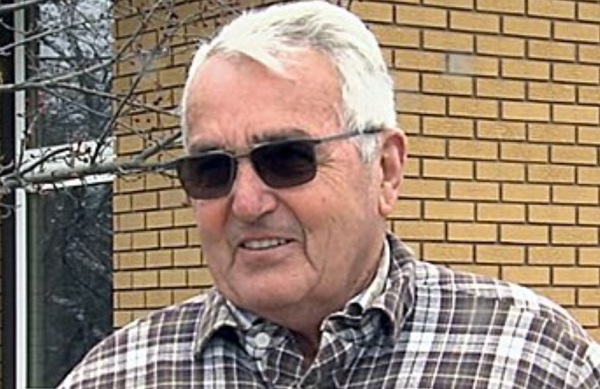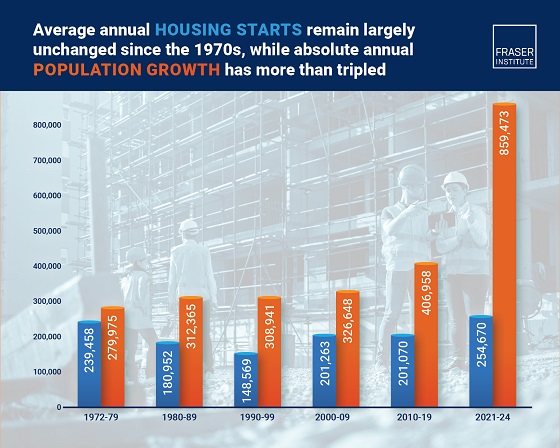Opinion
Ontario mayor refuses to cave in to demands after town rejected ‘pride’ flag

Mayor Harold McQuaker of Emo, Ontario
From LifeSiteNews
Emo, Ontario mayor Harold McQuaker said he will ‘absolutely not’ pay a fine or attend re-education classes, emphasizing that ‘I will not be extorted.’
Last month, the Ontario Human Rights Commission ordered the township of Emo to pay the LGBT activist group Borderland Pride $10,000 for voting in 2020 not to fly a “Pride” flag. Mayor Harold McQuaker was ordered to personally pay $5,000 — and take a re-education course titled “Human Rights 101” to boot. We covered both the original story as well as a follow-up, detailing Borderland Pride’s threats and demands.
There is a new development in the case: Mayor Harold McQuaker is flatly refusing to do what is being demanded of him. Asked by the Toronto Sun if he will pay the fine or attending re-education classes, the 77-year-old McQuaker was blunt. “Absolutely not,” he replied. “I will not be extorted.” He also stated that he will not host Drag Queen Story Hour at the local library, either — one of the demands laid out in an open letter published by Borderland Pride.
Emo Township is a small town of just over 1,200 people located 380 kilometers west of Thunder Bay. The township now has to decide whether to pay the LGBT activist group as demanded by the Ontario Human Rights Commission or refuse to do so. McQuaker has made up his mind. “I utterly refuse to pay the $5,000 because that’s extortion,” he stated. “I have a lot of respect for our four councillors. We have a special meeting of council, and they will decide that and what to do next, either pay the fine or appeal it.”
McQuaker grew up in the area and owned a construction company there for 50 years, and he cannot be pushed around easily. “I will not pay the $5,000 I have been fined and will not take the training,” he emphasized to the Sun. “The council will decide on the fine levied to it. I did not do anything wrong … if anybody needs training it’s the LGBTQ2+ to quit pushing their weight around and making demand that people can’t live with.”
Ironically, the Emo town hall doesn’t even have a flagpole — but that didn’t matter to Borderland Pride, which has, in addition to other demands, stated that it expects a written apology as well as “diversity and inclusion training for council, and a commitment to adopt Pride proclamations in the future without stripping out their 2SLGBTQIA+-affirming language.” Borderland Pride insisted that despite the lack of flagpole the LGBT flag could have been displayed somewhere else, “such as in a window or on a counter in the municipal office.”
McQuaker emphasized that he “doesn’t hate anyone” and that he will not tolerate the accusations being leveled at him by Borderland Pride. “I am a husband to my wife for 51 years, father of two, a grandfather of seven and a great grandfather of one,” he said. “I consider myself a very reasonable person and a good leader for our community and I would have a lot of support if there was an election.”
In response, Doug Judson of Borderland Pride suggested that the mayor should be happy to learn from the LGBT group because his role:
(A)ctually requires that the mayor ‘participate in and foster activities that enhance the economic, social and environmental well-being of the municipality and its residents.’ Part of showing this kind of community leadership is to set the tone for civil debate and to demonstrate a willingness to learn and adapt one’s perspective on issues that, for various reasons, they may have more limited understanding of. It seems obvious enough that the mayor does not have many ties to the queer community. We hope that the training that was ordered by the tribunal will assist him in his leadership role moving forward.
In short, Judson and his LGBT activist buddies hope that forcing the 77-year-old mayor of a small town to take re-education classes will create “ties to the queer community” and that he will be a good boy from now on and do what they demand the first time. Harold McQuaker isn’t having any of it — and we need more like him. Godspeed to the mayor — I hope that the council follows suit.

2025 Federal Election
AI-Driven Election Interference from China, Russia, and Iran Expected, Canadian Security Officials Warn

 Sam Cooper
Sam Cooper
Canada’s election monitoring agency is warning that foreign powers, led by the People’s Republic of China, are expected to target Canadian politicians and political parties in the coming weeks using increasingly convincing AI-generated cyberattacks—part of a broad set of malign strategies that could be impacting the 2025 federal election.
The warning came Monday from the Security and Intelligence Threats to Elections (SITE) Task Force, whose officials detailed how foreign state actors, including China, Russia, and Iran, are likely to use so-called “hack-and-leak” operations, generative AI, and social engineering to undermine confidence in Canada’s democratic process.
“Canadian politicians and political parties are likely to be targeted by threat actors attempting to hack into their systems, steal information, and leak that information,” said an official from the Canadian Centre for Cyber Security, a branch of the Communications Security Establishment. “We assess that AI is making social engineering attacks more personalized, pervasive, and harder to detect.”
Officials cited a 2024 U.S. Department of Justice indictment that charged Iranian-linked cyber actors with stealing and leaking campaign material belonging to U.S. political figures, including to rival campaigns. The case, SITE said, was emblematic of an evolving threat model now being deployed globally.
“Increasingly, nation states are incorporating AI into their cyber operations,” SITE warned. “Generative AI tools enable cyber threat actors to create realistic audio and video content impersonating trusted individuals or deepfakes.”
These tools, SITE added, are being used to craft emails that mimic natural human writing, using convincing grammar and tone to fool even seasoned professionals—including campaign staff, journalists, and elected officials.
SITE said that the cyber programs of China, Russia, and Iran represent the greatest strategic cyber threats to Canadian democracy during the current election. Among them, the PRC was flagged as the most persistent in targeting Canadian political figures, public officials, and institutions.
“The PRC regularly targets Canadian government networks and public officials to acquire information that will advance its strategic economic and diplomatic interests,” an official said. “This information is likely also used to support the PRC’s malign influence and interference activities against Canada’s democratic processes.”
SITE linked these activities to broader campaigns of transnational repression. Chinese cyber actors have been publicly tied to operations targeting Uyghur activists in Canada, as well as journalists and dissidents from Hong Kong and Taiwan. The tactics include spyware, phishing campaigns, and digital tracking.
“PRC actors very likely facilitate transnational repression by monitoring and harassing these groups online,” an official added, noting that Beijing has labeled Uyghurs, Falun Gong practitioners, Tibetans, and pro-democracy advocates among its so-called ‘five poisons.’
Russia and pro-Russian non-state actors were described as the most aggressive actors globally over the past two years in targeting elections, using cyberattacks and information warfare to influence outcomes and undermine faith in democratic institutions.
SITE officials emphasized that the task force is actively monitoring signals intelligence, cyber intrusion attempts, and online manipulation in real-time — and will issue public alerts if they identify specific incidents linked to foreign actors.
But the challenge, they said, is that these operations increasingly blend foreign state capabilities with domestic narratives and influencers, making detection and attribution more difficult.
“The environment is rapidly evolving,” the official concluded. “We are asking everyone — from parties to voters — to be vigilant in the face of increasingly deceptive and technologically sophisticated foreign interference.”
Two weeks ago, Canada’s Security and Intelligence Threats to Elections (SITE) Task Force identified a sophisticated PRC information campaign targeting Chinese-language social media in Canada. On March 10 and March 25, the WeChat account Youli-Youmian, linked to Chinese Communist Party propaganda efforts, shared widely amplified posts portraying Mark Carney in a highly favorable light.
One post, titled “The US encounters a ‘tough guy’ Prime Minister,” framed Carney as standing up to Donald Trump’s tariff threats.
At the SITE briefing Monday, The Bureau questioned whether the task force would investigate the Carney campaign’s “ButtonGate” scandal as potential domestic election interference—especially given the operation echoed a PRC disinformation playbook from 2021 that falsely depicted the Conservatives as Trump-style extremists. The question also raised whether SITE had the capacity to examine any crossover between this Liberal narrative and a broader foreign campaign.
A SITE spokesperson replied cautiously: “National security agencies take any attempt to undermine our democracy really seriously… Not all disinformation is foreign-backed… but SITE is committed to informing Canadians when emerging issues can be linked to foreign state actors.”
Alongside its public briefing Monday, the SITE Task Force released a visual guide warning Canadians about how disinformation spreads during elections.
The schematic emphasizes vigilance, encouraging Canadians to scrutinize domain names, design inconsistencies, and suspicious endorsements. It also urges users to verify sources, use fact-checking tools, and avoid sharing unverified content.
The Bureau is a reader-supported publication.
To receive new posts and support my work, consider becoming a free or paid subscriber.
Invite your friends and earn rewards
2025 Federal Election
Housing starts unchanged since 1970s, while Canadian population growth has more than tripled

From the Fraser Institute
By: Austin Thompson and Steven Globerman
The annual number of new homes being built in Canada in recent years is virtually the same as it was in the 1970s, despite annual population growth
now being three times higher, finds a new study published today by the Fraser Institute, an independent, non-partisan Canadian public policy think tank.
“Despite unprecedented levels of immigration-driven population growth following the COVID-19 pandemic, Canada has failed to ramp up homebuilding sufficiently to meet housing demand,” said Steven Globerman, Fraser Institute senior fellow and co-author of The Crisis in Housing Affordability: Population Growth and Housing Starts 1972–2024.
Between 2021 and 2024, Canada’s population grew by an average of 859,473 people per year, while only 254,670 new housing units were started annually. From 1972 to 1979, a similar number of new housing units were built—239,458—despite the population only growing by 279,975 people a year.
As a result, more new residents are competing for each new home than in the past, which is driving up housing costs.
“The evidence is clear—population growth has been outpacing housing construction for decades, with predictable results,” Globerman said.
“Unless there is a substantial acceleration in homebuilding, a slowdown in population growth, or both, Canada’s housing affordability crisis is unlikely to improve.”
The Crisis in Housing Affordability: Population Growth and Housing Starts 1972–2024
- Canada experienced unprecedented population growth following the COVID-19 pandemic without a commensurately large increase in new homebuilding.
- The imbalance between population growth and new housing construction is reflected in a significant gap between housing demand and supply, which is driving up housing costs.
- Canada’s population grew by a record 1.23 million new residents in 2023 almost entirely due to immigration. That growth was more than double the pre-pandemic record set in 2019.
- Population growth slowed to 951,517 in 2024, still well above any year before 2023.
- Nationally, construction began on about 245,367 new housing units in 2024, down from a recent high of 271,198 starts in 2021—Canada’s annual number of housing starts peaked at 273,203 in 1976.
- Canada’s annual number of housing starts regularly exceeded 200,000 in past decades, when absolute population growth was much lower.
- In 2023, Canada added 5.1 new residents for every housing unit started, which was the highest ratio over the study’s timeframe and well above the average rate of 1.9 residents for every unit started observed over the study period (1972–2024).
- This ratio improved modestly in 2024, with 3.9 new residents added per housing start. However, the ratio remains far higher than at any point prior to the COVID-19 pandemic.
- These national trends are broadly mirrored across all 10 provinces, where annual population growth relative to housing starts is, to varying degrees, elevated when compared to long-run averages.
- Without an acceleration in homebuilding, a slowdown in population growth, or both, Canada’s housing affordability crisis will likely persist.
Austin Thompson
-

 2025 Federal Election2 days ago
2025 Federal Election2 days agoPPE Videos, CCP Letters Reveal Pandemic Coordination with Liberal Riding Boss and Former JCCC Leader—While Carney Denies Significant Meeting In Campaign
-

 2025 Federal Election2 days ago
2025 Federal Election2 days agoNo Matter The Winner – My Canada Is Gone
-

 2025 Federal Election1 day ago
2025 Federal Election1 day agoCSIS Warned Beijing Would Brand Conservatives as Trumpian. Now Carney’s Campaign Is Doing It.
-

 2025 Federal Election1 day ago
2025 Federal Election1 day agoInside Buttongate: How the Liberal Swamp Tried to Smear the Conservative Movement — and Got Exposed
-

 2025 Federal Election2 days ago
2025 Federal Election2 days agoASK YOURSELF! – Can Canada Endure, or Afford the Economic Stagnation of Carney’s Costly Climate Vision?
-

 Alberta2 days ago
Alberta2 days agoProvince to expand services provided by Alberta Sheriffs: New policing option for municipalities
-

 Alberta1 day ago
Alberta1 day agoMade in Alberta! Province makes it easier to support local products with Buy Local program
-

 International1 day ago
International1 day agoTulsi Gabbard tells Trump she has ‘evidence’ voting machines are ‘vulnerable to hackers’











